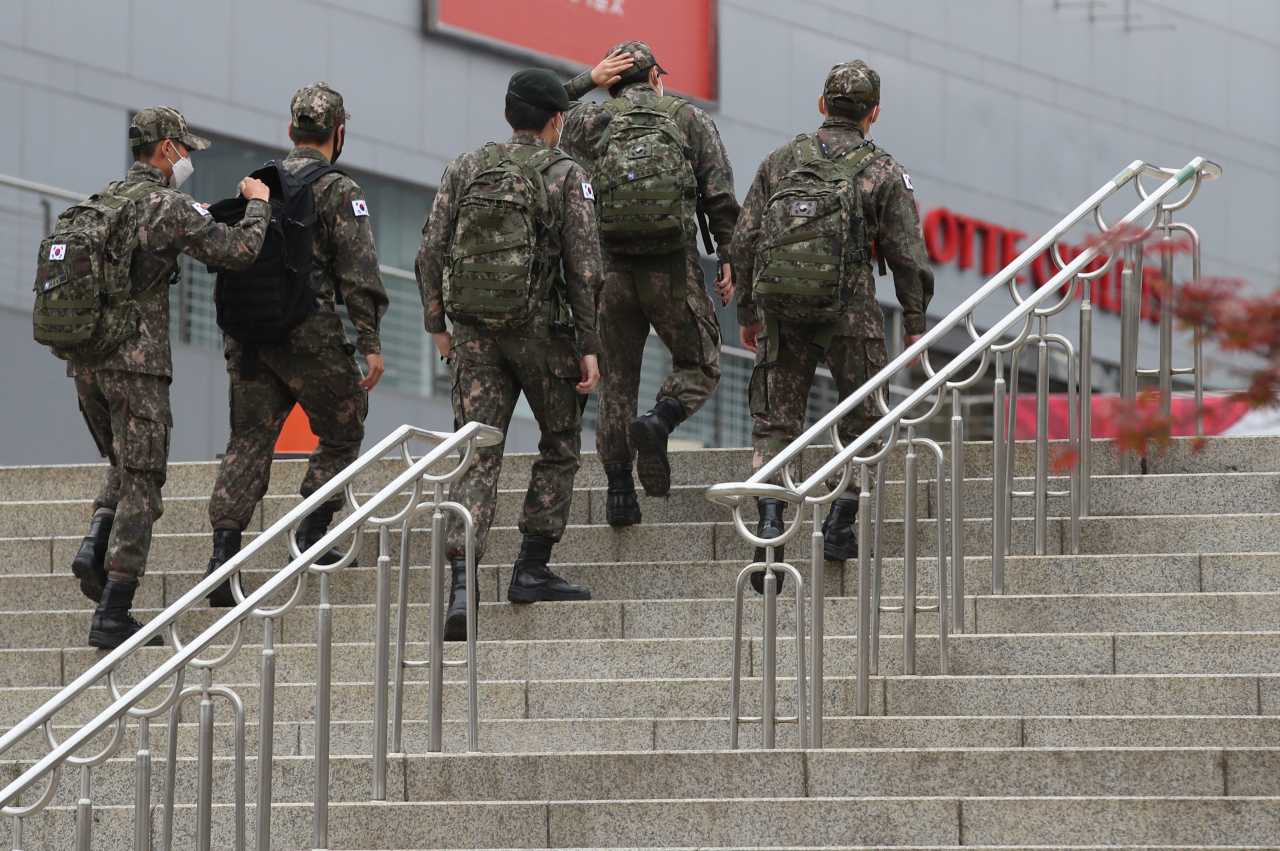 |
This photo, taken on May 10, 2021, shows service members at Seoul Station. (Yonhap) |
Advocacy groups for overseas Koreans are demanding for measures to protect the rights of expats living outside of South Korea in carrying out their mandatory military service, as a revision that recently took effect infringes their right to visit and stay in their home country as lawful citizens.
The Korean International Network and others claimed in a joint statement Sunday that the right to choose their place of living could be infringed for third and fourth generation Korean nationals living overseas with revisions to the Enforcement Decree of the Military Service Act, which took practical effect Friday.
The act now states that if a “second generation Korean national residing abroad” has cumulatively stayed in Korea for at least three years after turning 18, he shall not be considered within the definition and will be subject to mandatory military service and face restrictions in visiting and staying in Korea.
In the past, Korean males with foreign residence or nationalities were exempt from physical examination until reporting return to Korea for the reason of permanent stay, and their duty expired once they hit the age of 37.
The revision still exempts those who gave up their Korean citizenship from military duty, but has narrowed the scope of exemption for Korean nationals depending on how long they actually stay in Korea.
It was introduced on May 29, 2018, which means that any man below 37 with Korean citizenship who has stayed in Korea for three years or more since then is now required to complete their time in the military.
The advocacy groups claim that the revision effectively threatens the livelihoods of Korean nationals who legally settled and started lives in Korea after spending most of their lives abroad. Their right to choose an occupation and carry out for-profit activities in their home country is also limited by the revision, they say.
Especially with COVID-19 pandemic in force, their 14 days of self-quarantine are included in counting their number of days staying in Korea, which further restricts their right to visit Korea as citizens.
“Above all else, most of these third and fourth generation Koreans are not fluent in Korean because they were born outside Korea,” the groups said in the statement.
“Adjusting to Korea and the language can take years already, but being required to serve in a strictly hierarchical military society for just a short stay is extremely unreasonable.”
The groups ask the government to give expats with Korean citizenship a chance to take alternative ways to complete their military service in consideration of their individual situations.
By Ko Jun-tae (
ko.juntae@heraldcorp.com)








![[Today’s K-pop] Blackpink’s Jennie, Lisa invited to Coachella as solo acts](http://res.heraldm.com/phpwas/restmb_idxmake.php?idx=644&simg=/content/image/2024/11/21/20241121050099_0.jpg)